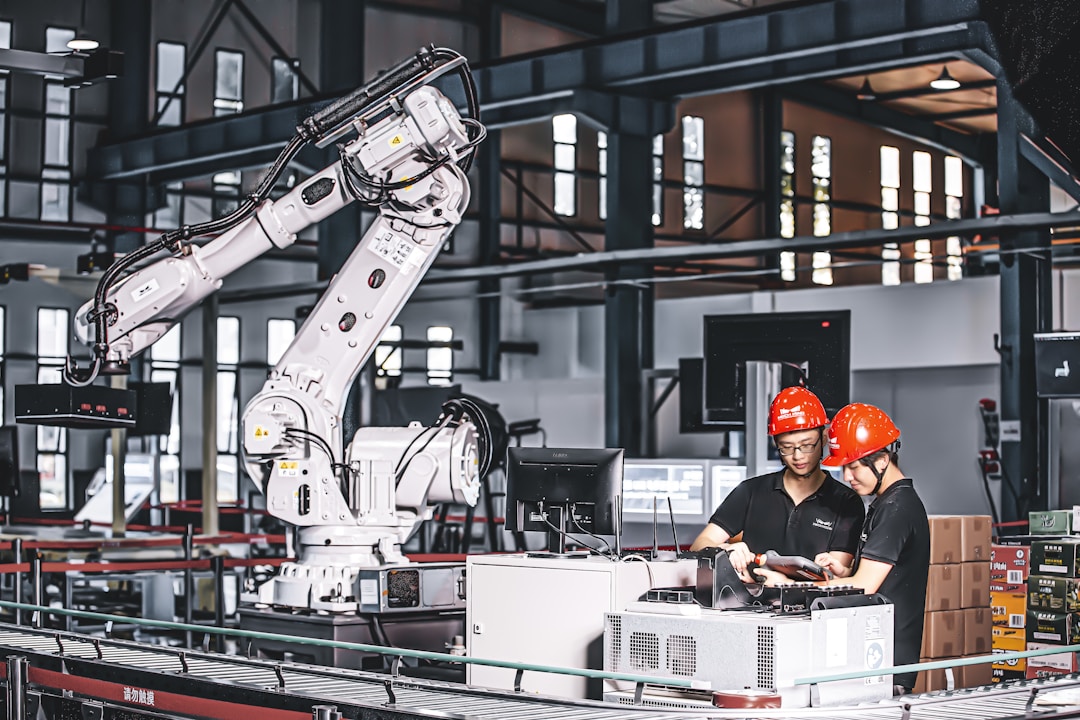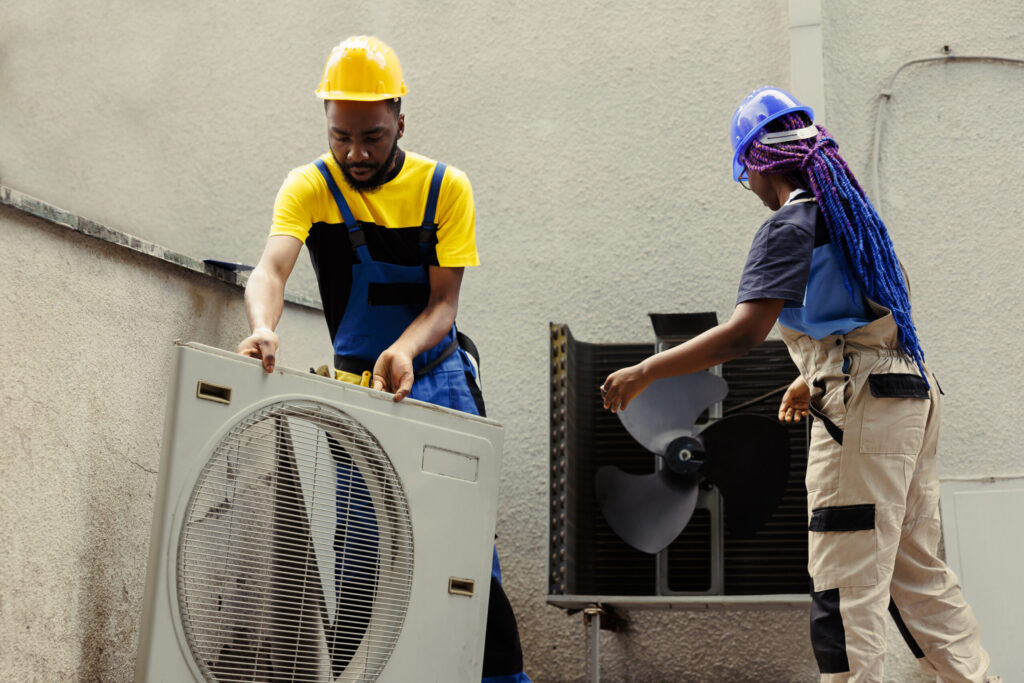In the fast-evolving world of commercial operations, facility managers constantly seek technologies that not only improve the efficiency of their systems but also reduce operational costs and environmental impact. Among the key components in HVAC and refrigeration systems are the condensers, which play a critical role in dissipating heat. The introduction of evaporative condensers has brought a wave of benefits for commercial facilities. Here, we delve into the advantages that these systems bring, underlining why they might be the right choice for modern commercial establishments.
Enhanced Energy Efficiency
One of the standout benefits of evaporative condensers is their superior energy efficiency. Traditional air-cooled condensers dissipate heat by blowing air over a coil. In contrast, evaporative condensers use a combination of air and water to evaporate a portion of the working fluid, which in turn cools the remaining liquid to a lower temperature. This process consumes significantly less energy compared to its air-cooled counterparts. As a result, facilities that employ evaporative condensers can expect reductions in energy consumption, leading to a decrease in operational costs.
Greater Cooling Capacity

In an age where commercial facilities are scaling up rapidly, there is a growing need for systems that can handle larger cooling loads. Evaporative cooling, with its unique method of heat dissipation, is well-equipped to manage these higher demands. Due to the latent heat of vaporization, the process of evaporating water can absorb large amounts of heat. This principle allows evaporative condensers to achieve greater cooling capacities compared to other systems of similar sizes.
Compact Footprint and Design Flexibility
Space optimization is a priority for many facility managers, especially in urban settings where real estate comes at a premium. Evaporative condensers are designed to be compact, offering more cooling capacity per square foot of installation space. This not only saves valuable space but also provides designers and architects with more flexibility in planning and optimizing facility layouts. With evaporative condensers, businesses can effectively manage their cooling needs without sacrificing a significant portion of their space.
Extended Equipment Lifespan
Evaporative condensers offer operational conditions that can extend the life of the equipment. By operating at lower overall temperatures, the wear and tear on system components are reduced. This translates to fewer maintenance requirements and longer intervals between necessary system replacements. Investing in this air-cooled condenser can, therefore, be seen as a long-term strategy, one that not only provides efficient cooling but also ensures the equipment serves the facility for an extended period.
Environmentally-Friendly Operation
The growing emphasis on green and sustainable practices in commercial operations cannot be understated. Evaporative condensers stand out in this regard. Firstly, by virtue of their energy efficiency, they contribute to reduced carbon footprints. But beyond that, these condensers use water, a more environmentally friendly medium, to dissipate heat. While water usage might raise concerns, many modern evaporative condensers are designed to be water-efficient, minimizing wastage and ensuring a more sustainable operation. Furthermore, by reducing the dependency on refrigerants, which often have a high Global Warming Potential (GWP), evaporative condensers contribute to a lesser environmental impact.
Cost Savings in the Long Run
While the initial investment for evaporative condensers might be higher than traditional systems, the benefits they offer translate into cost savings over time. Reduced energy bills, fewer maintenance requirements, and extended equipment lifespan all contribute to a lower Total Cost of Ownership (TCO). For commercial facilities, where operational costs can run high, these savings can be substantial over the life of the system. In the long run, the return on investment (ROI) for evaporative condensers becomes evidently favorable.
Reduced Operational Noise
In the hustle and bustle of commercial environments, minimizing noise pollution becomes a necessity. Evaporative condensers, by virtue of their design and operating mechanism, tend to produce less operational noise compared to traditional air-cooled systems. This can be particularly beneficial for facilities situated in noise-sensitive areas, ensuring commercial operations don’t disrupt the surrounding environment. Quieter operations can also enhance the work environment for employees and visitors, promoting productivity and comfort.
Improved Air Quality and Ventilation
With the increased focus on health and safety, particularly in the light of global pandemics, the quality of indoor air is of paramount importance. Evaporative condensers, in their operation, can promote better ventilation and air quality. By constantly drawing in fresh air from the outside and using it in the cooling process, there’s a continuous circulation of air. This ensures stale or contaminated air is frequently replaced, leading to a healthier indoor environment, which is especially beneficial for facilities like malls, offices, and hospitals.
Scalability and Modular Integration
As commercial entities expand, their cooling needs also evolve. One of the strengths of evaporative condensers is their scalability. Many manufacturers offer modular units that can be integrated seamlessly with existing systems. This means that as a facility grows, additional units can be added without the need for a complete overhaul of the cooling system. Such modular integration ensures businesses can adapt to changing requirements without incurring prohibitive costs or extended downtime.
Lower Peak Power Demand
During hot summer months, the demand on the power grid can surge, leading to higher electricity rates during peak periods. Evaporative condensers, being more energy-efficient, can help commercial facilities reduce their peak power demand. This not only translates to direct savings on electricity bills but can also qualify businesses for demand-response incentives from utility companies, where available.
Robust Performance in Varied Climates
Climate adaptability is another strong suit of evaporative condensers. While traditional cooling systems may struggle or require modifications to work efficiently in extreme climates, evaporative condensers remain largely unaffected by such variations. Whether it’s the dry heat of deserts or the more temperate conditions of coastal regions, these condensers maintain their efficiency, ensuring commercial operations remain unaffected by external weather conditions.
Minimal Refrigerant Usage
The world is shifting toward solutions that minimize environmental impact. Traditional cooling systems often rely heavily on refrigerants, many of which have been identified as contributors to ozone layer depletion and global warming. Evaporative condensers, by design, use water as their primary cooling medium and thus require significantly less refrigerant. Adopting such systems aligns commercial facilities with global efforts to reduce harmful emissions and environmental pollutants.
Enhanced Safety Profiles

Safety is a paramount concern in commercial facilities. Evaporative condensers, by operating at lower pressures compared to traditional systems, present a reduced risk of pressure-related incidents. Furthermore, with the reduced dependency on refrigerants, which can be flammable or toxic under certain conditions, these condensers minimize potential hazards, ensuring a safer environment for both employees and patrons.
Streamlined Maintenance Procedures
While all mechanical systems require maintenance, evaporative condensers are designed to simplify this process. Their components are generally more accessible, reducing the time and complexity of routine checks and maintenance tasks. This streamlined process not only results in cost savings for labor and downtime but also ensures potential issues are addressed promptly, thus maintaining optimal operational efficiency.
Conclusion: Embracing the Future of Cooling Solutions
In the realm of commercial facility management, staying ahead of the curve requires adopting technologies that not only meet current demands but also anticipate future challenges. Evaporative condensers, with their myriad benefits, position themselves as an optimal choice for modern facilities. Whether it’s their energy efficiency, compact design, or environmentally friendly features, these systems address many of the concerns facility managers face today. As the world leans more toward sustainable and efficient solutions, embracing evaporative condensers is not just a choice, but a forward-looking decision that can shape the success of commercial enterprises.







